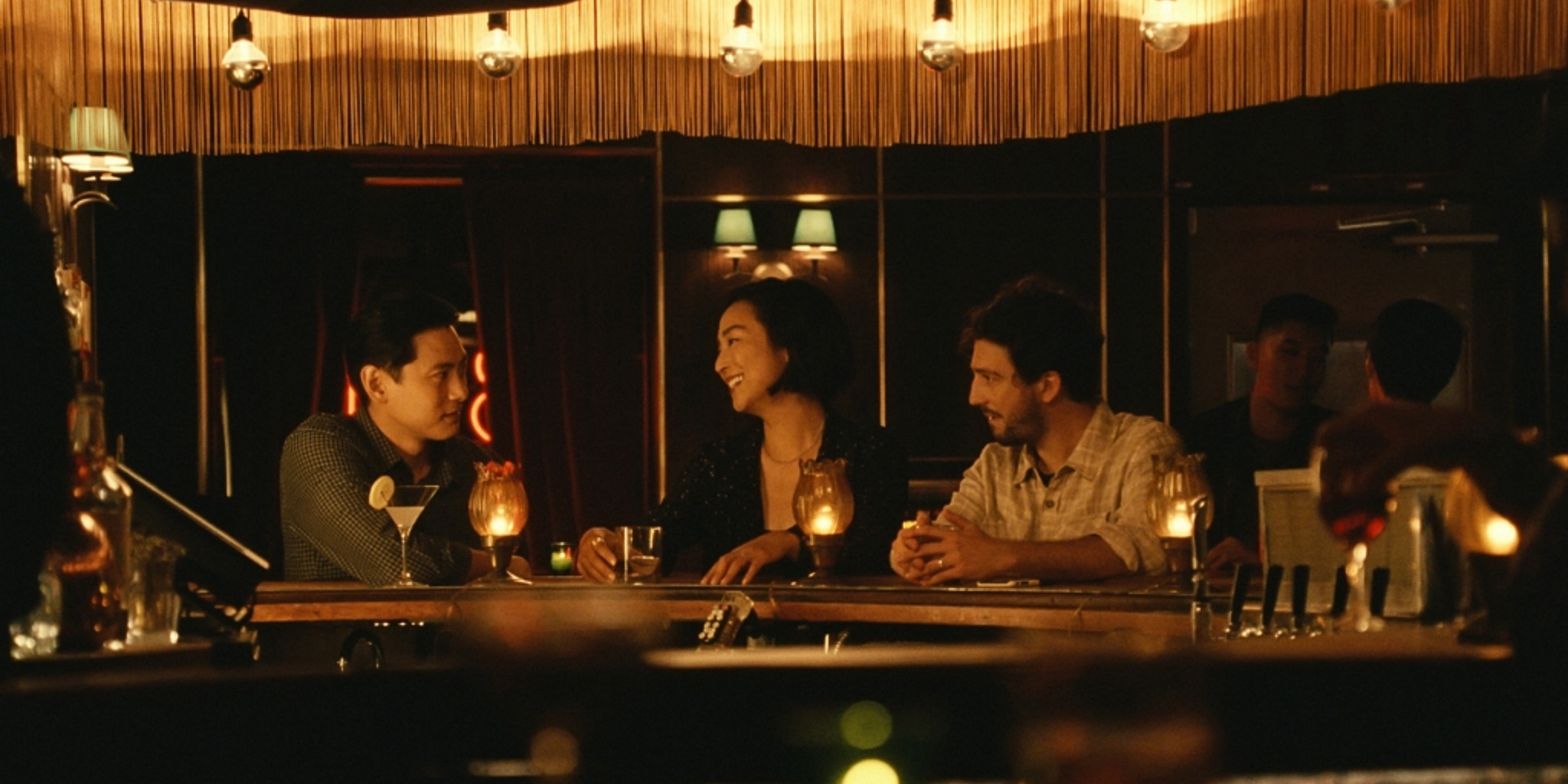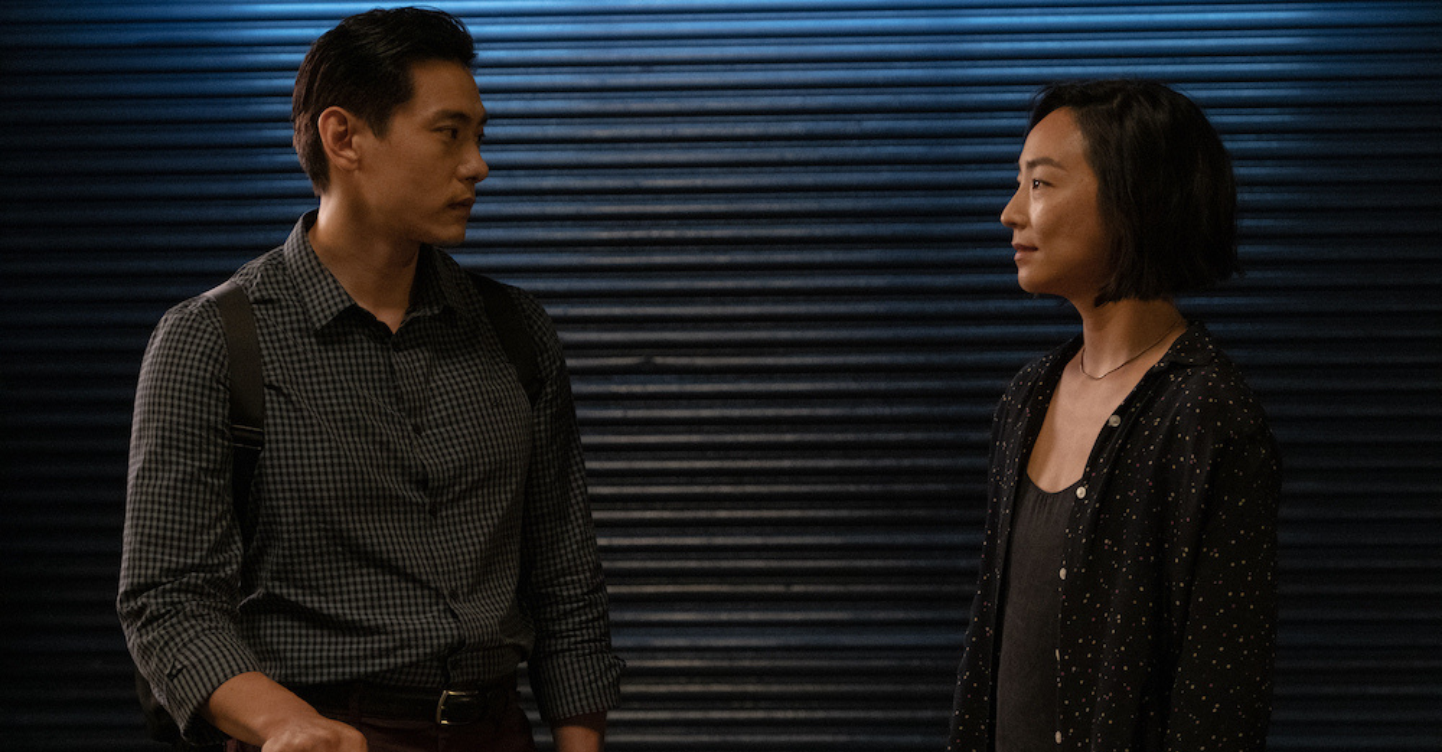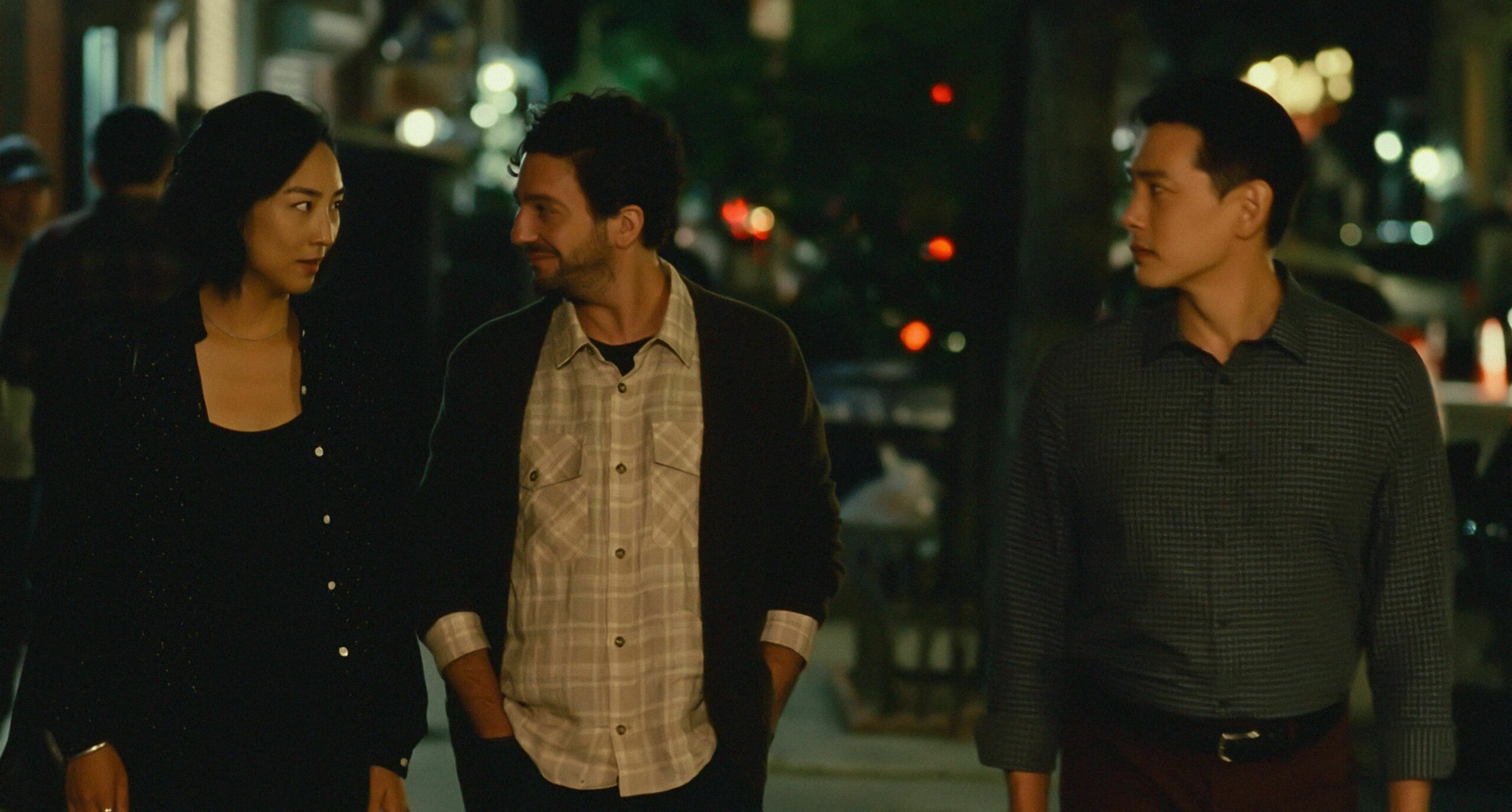At the beginning of the film, Nora, Hae Sung, and Arthur sit at a bar, while on-lookers through an off-cam commentary wonder about the situation of the three. The two Asians are engaged in conversation; the American is quietly finishing his beer. What’s the story here? The on-lookers make guesses: Are the two Asians brother and sister? Or are they a couple? Is the American their friend? Their tour guide?
This prologue is a reflection of the central question of the film. What are Nora and Hae Sung to each other? How does Arthur fit into this picture?

Photo: Past Lives | A24
The movie then goes back to 24 years earlier when Nora—who was then known as Na Young—and Hae Sung were around 12 in Seoul, South Korea. The two were childhood sweethearts. They were always by each other’s side. They walked home from school together and even went on an official date once—with their mothers chaperoning, of course. “He’s manly,” a gushing Nora tells her mother. “I will probably marry him.”
But Nora’s family is soon leaving for Canada, and gentle Hae Sung is visibly saddened about it, especially with Nora’s outward excitement over the move. When asked why she’s leaving, Nora tells a classmate: “Koreans don’t win the Nobel Prize for Literature.” Even as a little girl in pigtails, Nora knew exactly what she wanted.
The first time Nora and Hae Sung parted ways, we see them standing before a fork in the path among the narrow alleys of Seoul’s neighborhoods. One child stands in front of each path. Before Hae Sung is a straight, flat path, while Nora stands at the foot of a flight of stairs. This literal but metaphorical fork in the road tells us a lot about their respective futures. As they say their goodbyes, both move forward on their own path—Hae Sung continues on his steady, straight path in Seoul, while Nora ascends to follow her dreams in North America.

Photo: Past Lives | A24
Past Lives is a romantic film that spans two decades. But more than love, this is a movie about connections—the ones we make and the ones we let go of—as well as friendship, destiny, and the choices we make. And it’s a story about immigrants, too. Asians moving to North America in search of a better life, and the simultaneous search for identity that happens in the process. In one part of the movie, Nora tells her husband how she feels not Korean, but also so Korean.
In the movie, they talk a lot about “in-yun.” A Korean term that refers to “strings of providence” or the invisible ties that connect people throughout their lives and across different lifetimes. A karmic affinity. Nora and Hae Sung share an in-yun, but Nora and her husband Arthur do, too.
In fact, perhaps in-yun, no matter how strong (even 8,000 layers strong, as they say in the movie), has nothing to do with fate but instead has everything to do with connections. It suggests that everyone we meet we share an in-yun with, but maybe what we do with this in-yun is entirely up to us.
There is a beautiful, tender scene in Past Lives where they’re back at the bar and Hae Sung tells Nora: “You are the person who leaves, that is you to me. But to him, you are the person that stays.” In two decades Nora had left Hae Sung twice, but in this scene, Hae Sung graciously accepts things for what it is. “The truth I learned here is you had to leave because you’re you,” he tells Nora. “And the reason I liked you was because you’re you.”

Photo: Past Lives | A24
Another aspect of the film to love is the relationship not just between Nora and Hae Sung but one that includes Nora’s husband, Arthur, as well. Nora and Arthur portray a healthy and loving portrait of a married couple, one that is built on openness and trust. A gentle soul, Arthur never showed any resentment towards Hae Sung despite knowing his history with Nora, but instead welcomed him into their home and even took him out for pasta, at Hae Sung’s request. At one point Arthur even wonders about his role in this unusual scenario and jokingly refers to himself as “the evil white American husband standing in the way of destiny.”
Arthur appeared in Nora’s life quietly and unexpectedly. This is portrayed through a mindful shot looking out Nora’s open window, wind blowing in, and Arthur’s taxi arriving as she sleeps in her bedroom at an artist residency house. This manner of arrival gives us a glimpse of what Arthur’s presence in Nora’s life will be like. Quiet and unassuming, but also always unexpectedly kind, gentle, and present. Something we all hope love will be like when it arrives in ours.
So maybe in a way, Past Lives is also about a love triangle, but one without villains or predictable endings. A love triangle where perhaps destiny plays the biggest role but also none at all. Just choices made and a life to live.
Arthur, who is also a writer, is New York, career dreams, and the life Nora chose. Hae Sung is Seoul. A remnant of the 12-year-old pigtailed, crybaby Nora and a glimpse of what her life could have been if she never left South Korea. The life that never was.
Past Lives is not a story of regret. It’s not even a story about missed connections. It’s a story about two deeply connected people sharing an in-yun, pondering over what ifs, but finding peace in the present.
Past Lives is the debut feature film of director Celine Song, who also wrote the film. It stars Greta Lee as Nora, Teo Yoo as Hae Sung, and John Magaro as Arthur, and is distributed by A24. Catch it now in over 146 cinemas nationwide.
~




